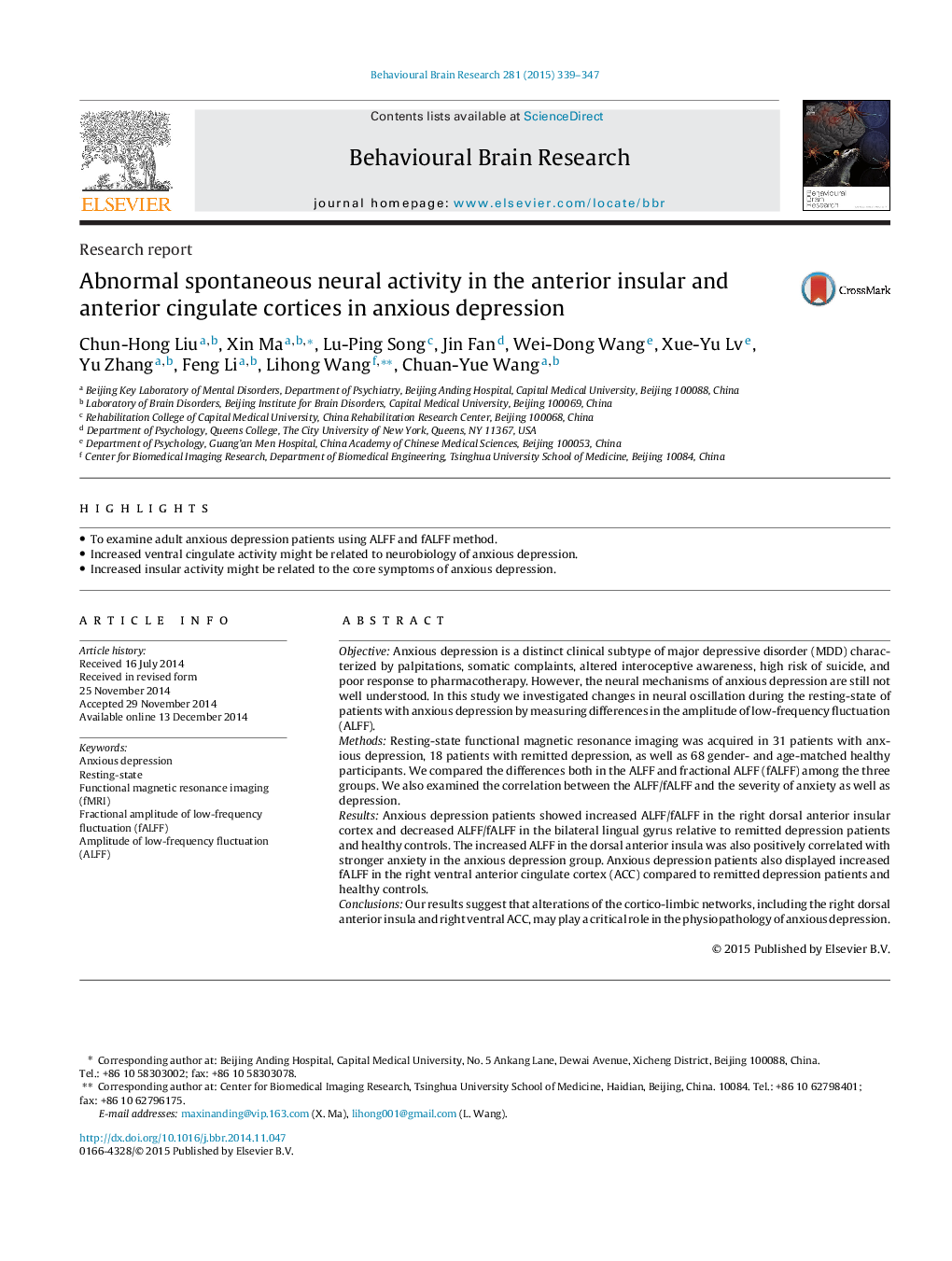| Article ID | Journal | Published Year | Pages | File Type |
|---|---|---|---|---|
| 6257044 | Behavioural Brain Research | 2015 | 9 Pages |
â¢To examine adult anxious depression patients using ALFF and fALFF method.â¢Increased ventral cingulate activity might be related to neurobiology of anxious depression.â¢Increased insular activity might be related to the core symptoms of anxious depression.
ObjectiveAnxious depression is a distinct clinical subtype of major depressive disorder (MDD) characterized by palpitations, somatic complaints, altered interoceptive awareness, high risk of suicide, and poor response to pharmacotherapy. However, the neural mechanisms of anxious depression are still not well understood. In this study we investigated changes in neural oscillation during the resting-state of patients with anxious depression by measuring differences in the amplitude of low-frequency fluctuation (ALFF).MethodsResting-state functional magnetic resonance imaging was acquired in 31 patients with anxious depression, 18 patients with remitted depression, as well as 68 gender- and age-matched healthy participants. We compared the differences both in the ALFF and fractional ALFF (fALFF) among the three groups. We also examined the correlation between the ALFF/fALFF and the severity of anxiety as well as depression.ResultsAnxious depression patients showed increased ALFF/fALFF in the right dorsal anterior insular cortex and decreased ALFF/fALFF in the bilateral lingual gyrus relative to remitted depression patients and healthy controls. The increased ALFF in the dorsal anterior insula was also positively correlated with stronger anxiety in the anxious depression group. Anxious depression patients also displayed increased fALFF in the right ventral anterior cingulate cortex (ACC) compared to remitted depression patients and healthy controls.ConclusionsOur results suggest that alterations of the cortico-limbic networks, including the right dorsal anterior insula and right ventral ACC, may play a critical role in the physiopathology of anxious depression.
